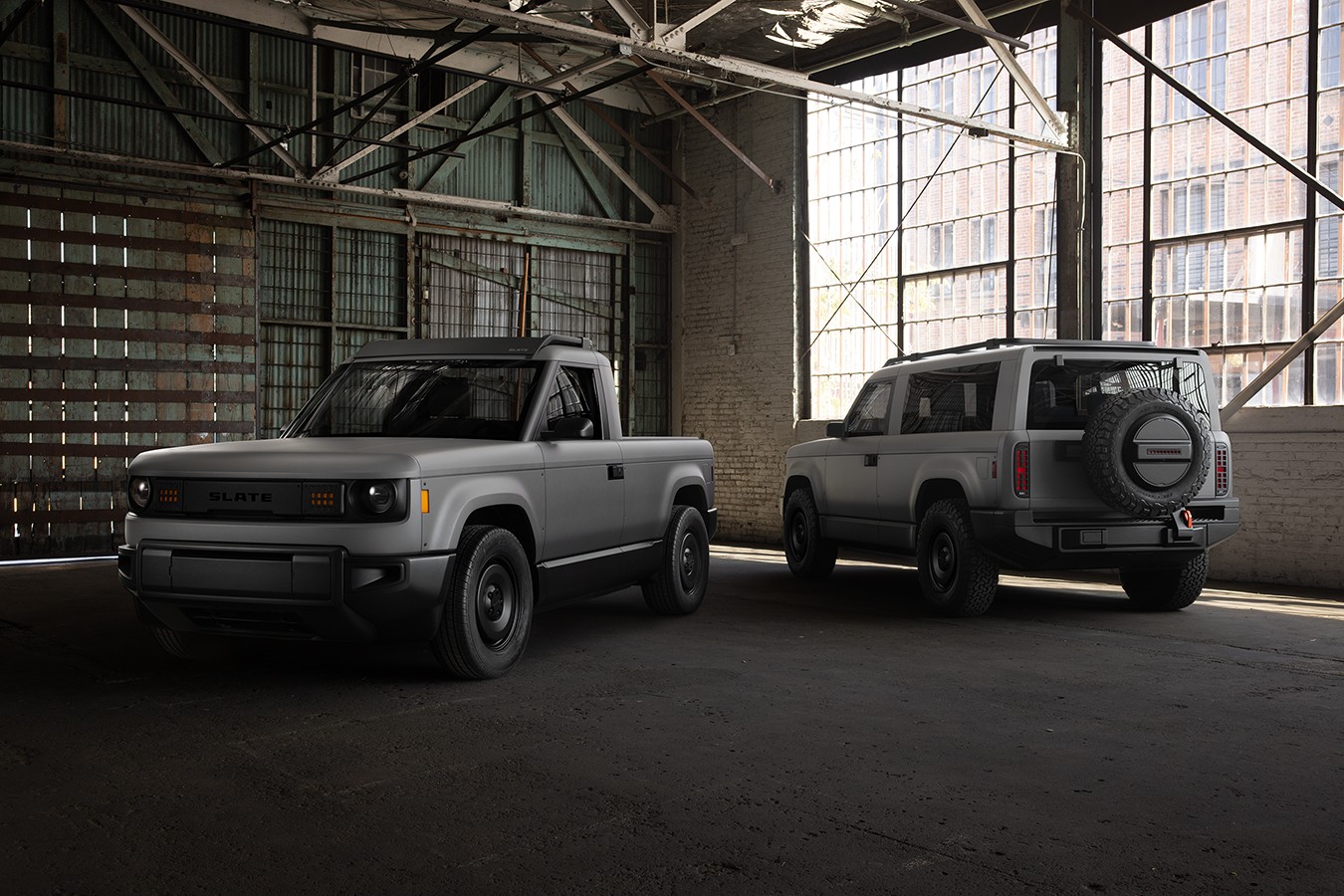
A new startup backed by Jeff Bezos is challenging the auto industry's status quo with a radically minimalist electric pickup truck. Slate Auto unveiled its debut vehicle Thursday - a bare-bones electric truck with a target price under $20,000 after federal rebates.
The Slate Truck deliberately omits many features modern drivers take for granted. It comes without paint, using scratch-resistant plastic body panels instead. There's no built-in stereo system or touchscreen entertainment console. Even the windows require manual cranking.
"The definition of what's affordable is broken," said Slate CEO Chris Barman. "Slate exists to put the power back in the hands of customers who have been ignored by the auto industry."
While basic, the two-seater truck includes practical elements like a universal phone mount and USB power. The company suggests using a portable Bluetooth speaker for music. Buyers can customize their vehicles through roughly 100 add-on options, from power windows to speaker systems to roof racks.
The base model features a 52.7-kWh battery providing 150 miles of range. An upgraded 84.3-kWh battery pack extends that to 240 miles. The truck can carry up to 1,433 pounds and tow 2,000 pounds.
Manufacturing will take place in the Midwest, with a design studio in Long Beach, California. The simplified production approach eliminates paint shops and reduces factory complexity.
Public reaction has been mixed. Some criticize the stark feature set and price point, while others praise the customizable, minimalist concept. "Looks wise I really dig it, like the kind of retro 80's Land Cruiser vibe," noted one online commenter.
Reservations are now open with a $50 refundable deposit. Deliveries are scheduled to begin in late 2026.
The Slate Truck represents a bold experiment in automotive design - stripping away common features to achieve an accessible price point while empowering buyers to personalize their vehicles. Time will tell if this austere approach resonates with American consumers.